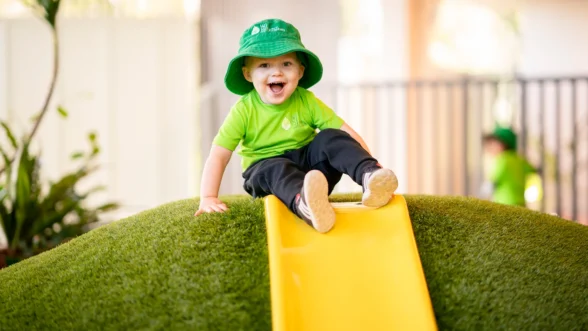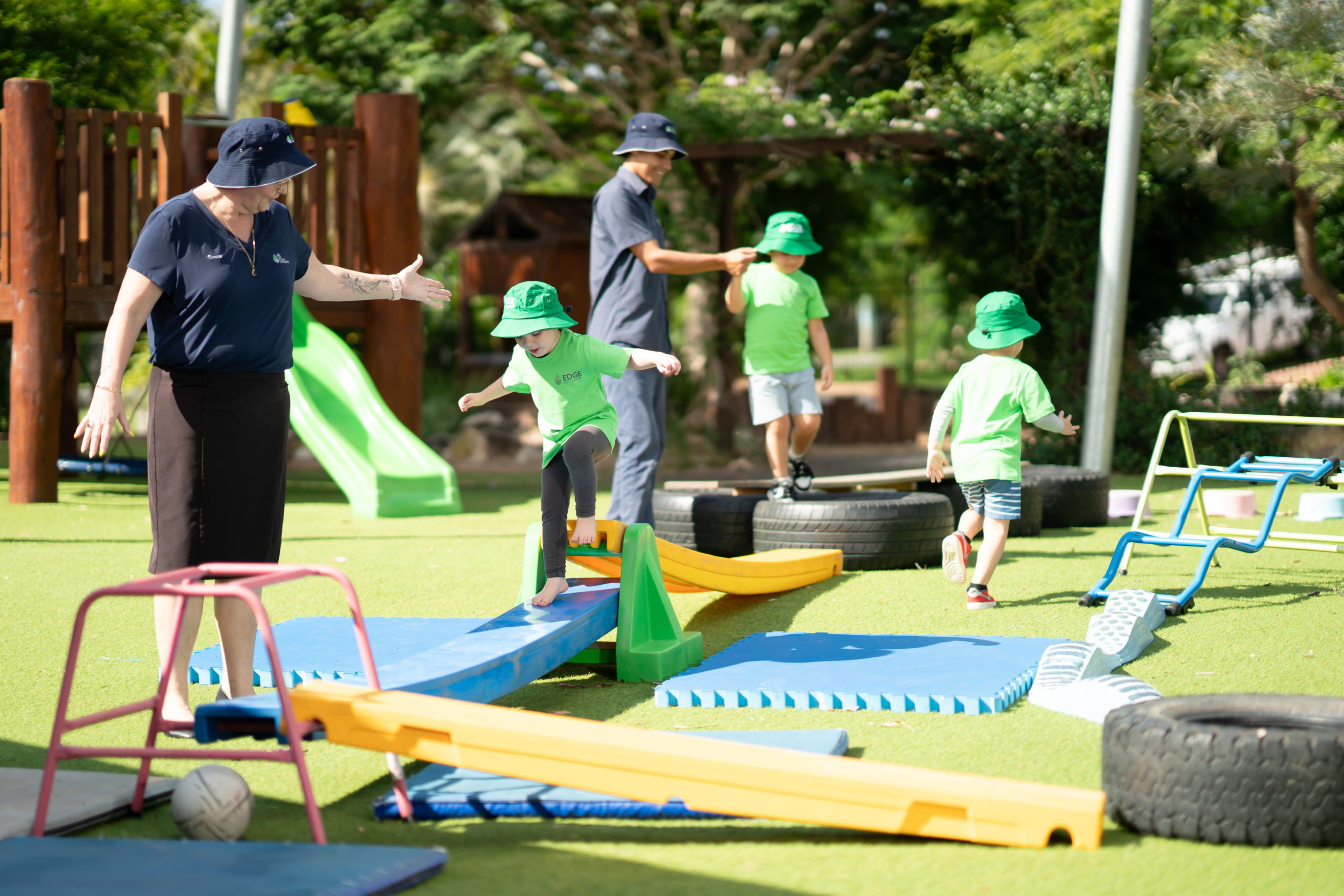
Education, Wellbeing
Education, Wellbeing
18 June, 2026

Fresh air, sunshine and the world to explore! Playing outside is superb. And yet most Aussie kids stay indoors. The 2023 child health poll Australian Families: How we play by the Royal Children’s Hospital shows less than half of Australian children play outside most days. The poll shows kids are being kept indoors because of a lack of time to supervise them, safety fears and the lure of screens. Those kids are missing out on the myriad of benefits of playing outside.
What is outdoor play for children?
Outdoor play is unstructured play, where children can use their imagination and creativity to play. It may involve making up games or playing on playground equipment or with found items, such as stones, leaves and sticks. Interacting with other children enhances the experience.
Outdoor play activities by age
Children are never too young to start the habit of spending time outside. Babies can lie on a rug in the shade and take in the colours, shapes, sounds and scents of nature. Toddlers enjoy nature walks or playing in the sandpit, while pre-schoolers love space to run and explore.
What are the benefits of playing outside for children?
Early childhood outdoor play is vital for children’s cognitive, social and emotional development.
Outdoor play benefits children’s physical health. It gives them opportunities to develop their gross motor skills, coordination and balance as they run, jump, skip and hop as well as climb, slide and learn to land safely. Their lungs and muscles develop along with their strength and fitness. They also reap the benefits of fresh air and Vitamin D from sunlight, which is vital for healthy bones.
One of the benefits of playing outside in unstructured play is the opportunity to build creativity and imagination as children decide what they are going to do. It boosts their cognitive skills, such as problem-solving and critical thinking. Outdoor play benefits the development of sensory skills as children explore different textures in nature and feel themselves moving in different ways as they jump, swing and slide.
Outdoor play helps children build connections with their playmates, including parents, siblings and other children. Early childhood outdoor play encourages children to interact with others and build friendships. It can help develop their communication, teamwork and conflict resolution skills – so resist the urge to jump in straight away when there is conflict. Kids often manage to sort things out themselves.
Moving our bodies and being outside in nature are proven ways to make us feel happier and relieve stress. What better reason to let the housework wait and head outdoors together?! Outdoor play can also be a way to boost children’s confidence and self-esteem, when they have a little independence in deciding how they play and opportunities to improve or learn new skills.
Outdoor play benefits children by helping them connect with nature and their local environment. It gives them an appreciation of their local area and a sense of ownership of their favourite parks, playgrounds and walking tracks, which helps them to feel connected to the world around them.
How to start outdoor play at home
Outdoor play can be as simple as kicking or throwing a ball in the backyard or going for a walk in your street. Using familiar toys, balls and games can help build your child’s confidence in playing outdoors. Introducing toys not used indoors, such as scooters or water tables can add excitement to outdoor play. Keep outdoor play interesting (for you too) by varying your environments, trying our new parks, walking tracks or finding a duck pond.
Outdoor play considerations for parents
Outdoor play does come with risks, so it’s important children are appropriately supervised. Expect small bumps, bruises and scratches as children push boundaries and develop new skills. Children need to make mistakes to learn from them and develop resilience.
Edge Early Learning encourages outdoor play
Our educators are aware of the importance of outdoor play in early childhood and we schedule time to playing outside every day. Check out the Edge Early Learning blog for more ideas for backyard play and storybooks to encourage children to play outside.